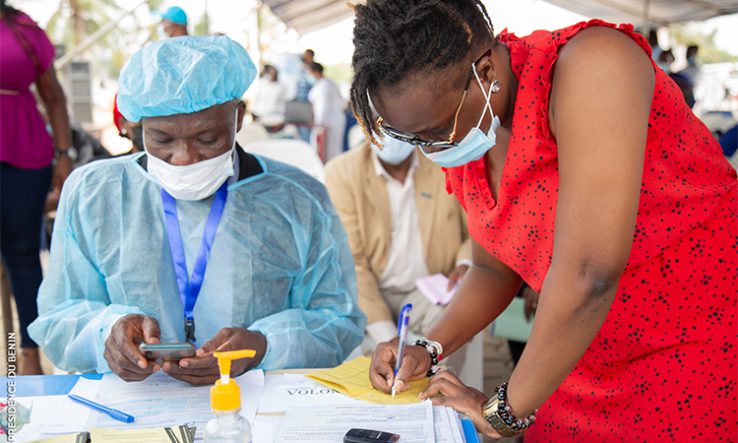
Image: Présidence de la République du Bénin [CC BY-NC-ND 2.0], via Flickr
But Africans produced nearly all Covid-19 literature about Africa in pandemic's first year
Only 160 journal papers on Covid-19 were published by African authors in the first year of the pandemic, a study has found.
However, although the proportion of global research they published was low, Africa-based scientists produced the vast majority of Covid-19 research published about Africa.
“Scientific production on the Covid-19 epidemic in Africa was very limited: it corresponded to less than 1 per cent of all published studies on Covid worldwide in 2020,” the authors of the paper write.
The authors attributed African authorship to papers that had either a first, second, third, or last author based in Africa.
While overall African representation was low, there was no sign that people from outside the continent dominated Covid-19 research in Africa. Almost all the research that focused on Africa’s experience on Covid-19 was led by Africans. More than 90 per cent of the papers on Africa were exclusively affiliated with African institutions or labs.
This is different to many other fields of research, where many studies about Africa are written without African leadership or even African research participation, a much-criticised practice commonly referred to as ‘helicopter’ or ‘parachute’ science.
The paper was written by researchers based in Cameroon, the Democratic Republic of the Congo and France. It appeared in Tropical Medicine and International Health on 5 January.
They found that papers with African authors focused almost exclusively on epidemiology. Few dealt with clinical research and none at all with high level physiology or immuno-virology.
West and North African countries dominated Africa’s Covid-19 research in 2020, producing 30 per cent of Africa’s output each, with West Africa scoring a single paper more than the North.
Nigeria produced the most papers, 27, followed by South Africa (21) and Egypt (20). The three plus Ethiopia produced more than half of Africa’s output.
“If we take out these four countries, which themselves feature only a handful of star researchers, very little research leadership could be evidenced across the continent,” the authors write.